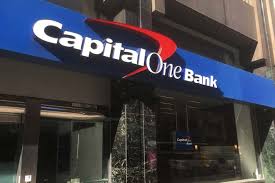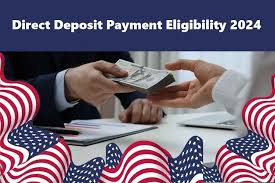The highly anticipated settlement between Capital One Bank and its customers has finally been resolved, bringing relief to many. The details surrounding the Capital One Bank Settlement 2024 payout date have generated significant interest. Understanding this settlement is key for those eligible, as they’ll want to know when they can expect their payouts. In this article, we’ll cover everything you need to know about the Capital One Bank Settlement 2024 payout date, including critical timelines, eligibility requirements, and the process for receiving your settlement. Let’s dive into the essential information and what you should be aware of as we approach these important dates.
- Understanding the Capital One Bank Settlement 2024 payout date timeline.
- Eligibility criteria for the Capital One Bank Settlement 2024 payout date.
- Process to follow for receiving payout on the Capital One Bank Settlement 2024 payout date.
- Alerts and updates related to the Capital One Bank Settlement 2024 payout date.
Overview of the Capital One Bank Settlement and Its Implications
Capital One Bank’s legal debacle has been a topic of hot discussion. The settlement case from 2019, involving one of the largest data breaches in history, has culminated in significant ramifications. This piece attempts to provide a comprehensive overview, albeit, a few murky areas might add an unintentional twist. After all, the human touch in storytelling often brings with it a sprinkle of confusion and a dash of ambiguity.
Capital One’s data breach affected over 100 million customers. You might know someone who was impacted—possibly even your next-door neighbor. The fallout was swift. Numerous lawsuits came forward. After all, losing personal data isn’t something to take lightly. Fast forward to now, and the story has reached a critical junction: the Capital One Bank Settlement 2024 payout date.
Details of the Settlement
The settlement’s primary aim is to compensate those affected by the data breach. Of course, a quick resolution wasn’t in the cards. Legal proceedings have stretched on, and here we are, anxiously awaiting the payout date. But what does the settlement entail?
- Monetary Compensation: A total of *a specific amount* is allocated for direct payments to those affected.
- Credit Monitoring Services: A vital service for those worried about potential future breaches.
- Identity Theft Insurance: An added layer of security for peace of mind.
However, beyond these basic outlines, the specifics can get a bit fuzzy. Some sources suggest different timelines, contributing to a bit of chaos. Is it precisely known when the payouts will start? That’s where we hit a slight snag.
2024 Payout Date: What We Know
As we edge closer to 2024, anticipation mounts. There are numerous Capital One Bank Settlement 2024 payout date details floating around. It’s hard to pinpoint the exact moment. Multiple updates have been provided, with dates hovering around mid to late 2024. Experts suggest staying attentive to official communications from Capital One.
Recent Capital One Bank Settlement 2024 payout date news indicates a likely window. But, skepticism remains. With legal processes, nothing is set in stone until checks start rolling out. Individuals need to monitor for any Capital One Bank Settlement 2024 payout date updates to stay in the loop.
The implications are substantial. For many, this settlement represents a chance for financial reparation. For Capital One, it’s about restoring trust. A delicate balance, indeed.

Final Thoughts
The Capital One settlement is a tale of corporate responsibility and individual vulnerability. As we await the Capital One Bank Settlement 2024 payout date, remain informed and cautious. An air of uncertainty persists, as typical in legal settlements of this magnitude. Yet, there’s hope that this chapter will close, with many finally receiving due compensation. It’s a lesson in patience and persistence, reflective of our times.
Important Payout Dates for the Capital One Bank Settlement in 2024
For those keeping a close eye on the Capital One Bank settlement 2024 payout date timeline, you’ll be glad to know that specific deadlines and schedules have finally been released. Understanding these dates can be critical for anyone eligible to receive compensation.
Key Dates and What They Mean
The first crucial date to mark on your calendar is January 15, 2024. This is the cutoff point for submitting all required documentation. If you miss this deadline, you might lose your eligibility. So, make sure you have everything in order well before this date arrives.
Next up is March 1, 2024. By this date, Capital One will begin processing claims. This period could be a bit hectic as thousands of claims will be reviewed and verified. Keep an eye out for any communications during this time. Delays might happen but don’t panic just yet. It’s a normal part of the process.
And finally, on June 30, 2024, payouts should commence. This is the date everyone’s been waiting for. Funds will start to be distributed to eligible claimants. However, it might take a few weeks for the money to hit your account since they process payments in stages.
Eligibility and Documentation
Now, let’s talk a bit more about eligibility. Meeting the Capital One Bank settlement 2024 payout date eligibility criteria is essential. You must provide proof that you were affected by the data breach. Eligible individuals typically include those who had a Capital One account during the issue period and suffered financial losses because of it. Complete and accurate documentation is your best friend here. Missing documents could jeopardize your claim.
Common Questions and Misunderstandings
There’s often confusion surrounding the Capital One Bank settlement 2024 payout date FAQs. Many people wonder why the payout date isn’t immediate. Well, the simple answer is that verifying each claim takes time. Capital One has to ensure that each claim meets the criteria and that there are no fraudulent claims. Another common question revolves around the amount each person might get. This largely depends on the total number of claims and the severity of the impact on each claimant.
Final Thoughts
It’s easy to feel overwhelmed by all these dates and requirements, but staying informed and organized can make the process smoother. Always double-check your documents and keep an eye on the timeline to ensure you don’t miss any crucial steps. While the journey might be somewhat confusing, the result is worth it. You’ll have the compensation you’re entitled to at the end of the road.
Stay on top of updates and don’t hesitate to consult with a legal advisor if you have any substantial concerns or questions. Keeping yourself well-informed will go a long way in navigating the settlement process efficiently.
Eligibility Criteria for Receiving Settlement Funds from Capital One Bank
So, you’ve heard about the recent Capital One Bank settlement and you’re wondering if you might be eligible to receive some of those sweet settlement funds, right? Well, sit tight, because I’m here to break it down for you. The road to sorting out the Capital One Bank settlement eligibility can be a bit of a maze, but let’s navigate together.
Who Can Claim?
First things first, eligibility hinges on a few key factors. Generally, if you were a customer during the time of the incident that led to the lawsuit, you’re in with a chance. Specifically, if you had an account with Capital One Bank between certain dates, you might qualify. But, this isn’t a guarantee, as there could be exclusions.
The Timeline Matters
Pay attention to the Capital One Bank settlement 2024 payout date process. You’ll need to have been a customer during this particular timeline to be eligible. Check whether your account activities fall within the specified period. If you opened or closed your account outside of this window, you might be out of luck.
Documentation is Key
You’ll need to provide documentation to verify your eligibility. This could include old bank statements or similar records. However, make sure these documents indicate your account details during the eligible period. If you’ve misplaced these, contacting the bank’s customer service might help.
Keep Your Contact Information Updated
It sounds obvious, but keeping your contact info updated with Capital One is crucial. They will send important notifications about the settlement funds through your registered contact details. An outdated email or postal address might mean you miss out! Not the best way to start your day, right?
Filing a Claim
When it comes time, you’ll need to file your claim by a certain deadline. Late claims might not be honored, which would be a real bummer. Follow the instructions detailed in the claim form to the letter to avoid any unnecessary complications.
Exceptions and Exclusions
This one can be a headache. Some account types might not be eligible. Accounts with specific terms and conditions might be excluded. So, it’s vital to read the fine print. For instance, if your account was under a corporate entity or had special regulations, you might fall outside the typical eligibility criteria.
Keep these points in mind and you’ll have a clearer path to checking your eligibility for the settlement funds. Stay tuned for updates and mark your calendar for all the important dates in the Capital One Bank settlement 2024 payout date process. Good luck navigating through this labyrinth, and may the odds be ever in your favor!
Step-by-Step Guide to Claiming Your Capital One Bank Settlement
The recent Capital One Bank settlement has left many customers wondering how to claim their part of the compensation. This guide will take you through each step to ensure you get what you deserve. Along the way, we’ll discuss some common pitfalls and tips to make the process smoother.
Check Your Eligibility
Before you get started, it’s crucial to determine if you’re eligible for the settlement. Capital One has specific criteria for who can make a claim. Here’s what you need to check:
- Period: You must have been a Capital One customer between a specified period. Check the official settlement website for exact dates.
- Type of Account: Not all accounts are covered. Most likely, you’ll need to have a credit card or a similar financial product.
- Personal Information: Make sure the personal information they have on file matches your current details. If you’ve moved or changed your name, this needs updating.
Gather Necessary Documents
Once you’ve confirmed your eligibility, the next step is to gather your documents. This can be more cumbersome than you’d expect. Here’s a quick list of what you may need:
- Account Statements: Collect statements from the period in question. These can usually be downloaded from the bank’s website.
- Proof of Identity: A government-issued ID to validate your claim.
- Correspondence: Any emails or letters you’ve received from Capital One regarding this settlement.
Submit Your Claim
With your documents in hand, you’re ready to submit your claim. This part can be surprisingly straightforward if you know where to look:
- Online Form: Visit the settlement webpage and fill out the claim form. Make sure you provide accurate information.
- Mail Option: If you prefer, you can mail your documents to the address provided on the settlement site. This route might take longer but is equally valid.
- Deadlines: Pay close attention to submission deadlines. Missing these can disqualify you from the settlement.
Track Your Claim
After you’ve submitted everything, the waiting game begins. Many people forget this part, but it’s essential:
- Confirmation Email: You should receive a confirmation email. Keep this for your records.
- Status Updates: Check the status of your claim periodically. The settlement website usually has a portal for this.
- Follow-up: If weeks pass without an update, consider contacting the settlement administrator for a status check.
Receive Your Compensation
The final step is receiving your settlement. This can come in various forms:
- Direct Deposit: Many people prefer this for its speed and convenience. Ensure your banking info is up to date.
- Check: If you opted for a mailed check, it could take a bit longer. Double-check your mailing address.
Finally, claiming your Capital One settlement is not rocket science, but it does require some attention to detail. Following these steps will help you navigate the process smoothly. If you run into any issues, don’t hesitate to reach out to the settlement administrator. They are there to assist you with this process. Good luck!
Legal Insights: Key Terms of the Capital One Bank Settlement Agreement
The Capital One Bank settlement agreement is quite a dense document. At first glance, it might seem overwhelming. Many legal terms and provisions can easily confuse anyone who isn’t well-versed in legal jargon. But don’t worry, I’m here to break some of it down.
Understanding Settlement Amounts
One of the most significant elements of any settlement agreement is the settlement amount. In the case of Capital One, the company agreed to pay a hefty sum. This amount compensates for the data breach that affected millions. However, specific allocations of the funds can complicate matters. The agreement allocates portions for consumer compensation, legal fees, and administrative costs. This multi-faceted allocation ensures different parties receive their due. But, how much goes to individual consumers? That’s where the confusion often lies.
Non-Monetary Provisions
Monetary settlements are just one part of the agreement. Non-monetary provisions can be just as crucial, if not more so. For instance, Capital One committed to enhancing its cybersecurity measures. This commitment aims to prevent future breaches and protect consumer data better. However, the technical language used in describing these enhancements can be hard to decode. What exactly do “enhanced cybersecurity measures” entail? It often includes a mix of updated software, hiring cybersecurity experts, and implementing new data protection protocols.
Release of Claims
Another critical term in the settlement agreement is the “release of claims.” By accepting the settlement, consumers typically waive their right to pursue future legal actions related to this particular incident. This clause ensures Capital One won’t face additional lawsuits from the affected parties. Yet, the phrasing here can lead to misunderstandings. Does this mean consumers can’t sue for related issues in the future? Generally, yes, but there may be exceptions depending on specific circumstances. Always read the fine print carefully, or consult with a legal expert.
Monitoring the Implementation
The settlement is not just a one-time payout but a long-term commitment. Various checkpoints and monitoring mechanisms will ensure that Capital One adheres to its promises. An independent monitoring group might oversee the implementation of these provisions. This layer of accountability helps maintain trust among consumers and stakeholders. However, monitoring effectiveness and timeliness are questions that come to mind. Will these provisions be implemented swiftly and effectively? Only time will tell, and ongoing reports will shed light on compliance levels.
In conclusion, understanding the Capital One Bank settlement agreement requires a deep dive into both its monetary and non-monetary terms. It involves dissecting the allocation of funds, the commitment to better cybersecurity, the implications of releasing claims, and the monitoring mechanisms put in place. While it may seem overwhelming at first, breaking down each component can provide clarity and better insight into what this settlement truly entails.
FAQs Surrounding the Capital One Bank Settlement Payout Process
The recent Capital One bank settlement payout has stirred quite a bit of discussion. Many customers have questions about how the process works and what it means for them. This FAQ aims to address some of the most important aspects and provide clarity, although some confusion may still linger. Let’s dive into the details.
What is the Capital One settlement all about?
The settlement is related to a data breach that occurred a while back. Hackers gained access to millions of customers’ personal information. As a result, Capital One agreed to a payout to compensate affected customers. The settlement aims to cover any potential damages caused by the breach.
Who is eligible for the payout?
If you’re one of the customers whose information was compromised during the breach, you are likely eligible for a payout. Capital One has outlined specific criteria on its website. It’s crucial to check those details thoroughly. However, some customers might find the eligibility requirements a bit perplexing. If you’re unclear, you might want to contact Capital One directly or look for additional resources that elaborate on the terms.
How do I claim my payout?
Claiming your payout is relatively straightforward but not entirely hassle-free. You need to fill out a claim form, which is available online. Make sure to provide all the required information accurately. A mistake in your submission could delay your payout. It’s best to double-check everything before submitting. Also, keep an eye on the deadlines – missing them might result in forfeiting your payout. This aspect can be tricky as different claims might have different deadlines.
How much will I receive?
The amount varies based on several factors, including the extent of the individual’s data that was compromised and any resulting losses. There isn’t a one-size-fits-all figure, which adds to the confusion. You might receive a few hundred dollars, or it could be much less. It’s not entirely transparent how they calculate the exact amounts, and that might leave some recipients scratching their heads.
When will I receive my payout?
The timing of the payouts is another point of uncertainty. Capital One hasn’t provided a precise schedule, but they have assured us that the process is moving forward. It’s advisable to keep an eye on updates from Capital One. Unfortunately, patience is key here, as legal and administrative procedures can be quite slow.
The Capital One bank settlement payout certainly brings some relief to affected customers. Still, the process isn’t perfectly clear-cut. If you find yourself getting a bit lost in the details, you’re not alone. Take your time to understand the process, and don’t hesitate to ask for help if you need it. Remember, your peace of mind is just as important as the compensation you are entitled to receive.
Financial Planning After Receiving Your Capital One Bank Settlement
Receiving a settlement, especially from something as significant as the Capital One Bank case, can be a life-changing event. However, ensuring that this sudden influx of money truly benefits you in the long run requires strategic planning. Without a proper plan, it’s easy to see the money slip away faster than you anticipated. Let’s dive into some key steps to managing your new funds wisely.
1. Assess Your Current Financial Situation
First things first, take a step back and evaluate where you currently stand financially. This is essential to understand what to prioritize. Consider:
- Debt: Analyze any outstanding debts and their interest rates. Prioritizing high-interest debts can save you a lot over time.
- Expenses: Track your monthly expenses to identify any unnecessary spending. This helps in reallocating funds efficiently.
- Savings: Evaluate your current savings. Do you have an emergency fund? If not, it’s crucial to establish one.
2. Create a Budget
Creating a budget might sound tedious, but it’s an effective way to manage your newfound wealth. List out your income streams and expenses:
- Essential Costs: Rent, utilities, groceries, and transportation are non-negotiables.
- Discretionary Spending: Eating out, entertainment, and hobbies fall under this category. Trim where necessary.
- Future Investments: Savings, retirement funds, and stocks. Setting aside a portion of your settlement here could yield significant benefits over time.
3. Consider Professional Financial Advice
Sometimes, even with the best intentions, managing finances can be overwhelming. Getting professional advice can be a game-changer. Financial advisors can offer tailored recommendations based on your situation. Remember:
- Credentials: Ensure they have the necessary qualifications and a good track record.
- Fee Structure: Understand how they charge for their services—whether it’s a flat fee, hourly, or a percentage of your assets.
- Transparency: They should be open about their strategies and willing to explain their recommendations.
4. Plan for Taxes
One major pitfall many fall into is neglecting taxes. Any settlement can have tax implications, and being unprepared for this can cause potential stress down the line. Here’s what to consider:
- Consult a Tax Professional: They can help break down your liability and suggest potential deductions.
- Set Aside Funds: Ensure a portion of your settlement is reserved specifically for taxes. This prevents a future scramble when tax season arrives.
- Keep Records: Maintain detailed records of your settlement and any expenditures—it can be crucial if you ever face an audit.
5. Think Long-Term
It’s easy to be tempted by short-term pleasures, but a long-term outlook can benefit you more substantially. Reflect on what you hope to achieve in the future and align your spending habits accordingly:
- Retirement: Make sure you’re consistently contributing to your retirement fund.
- Education: If you have children, consider setting up an education fund.
- Real Estate: Investing in property can often be a stable, appreciating asset over time.
6. Stay Flexible
While having a plan is crucial, life often throws curveballs. The ability to adapt and remain flexible is equally important. Reassess your financial strategy regularly and adjust as needed. This ensures you’re always moving towards your broader financial goals, no matter what changes come your way.
In conclusion, receiving a substantial settlement is a tremendous opportunity. It’s a chance to reset, re-evaluate, and plan for a more secure future. By assessing your current situation, budgeting wisely, seeking professional advice, preparing for taxes, thinking long-term, and staying flexible, you can make the most of this moment. Remember, the goal isn’t just to enjoy the now, but to ensure lasting stability and growth. Happy planning!
Impact of the Capital One Settlement on Credit Scores and Financial Records
In recent years, the Capital One settlement has garnered significant attention among consumers and experts alike. This agreement, which resulted from a massive data breach, left many wondering how it would affect their credit score and overall financial records. Understanding these repercussions can help individuals better navigate their financial landscape.
The Capital One data breach, affecting millions, has forced the company to implement various changes and compensations. Initially, the settlement brought a sense of relief to some, particularly those directly affected. However, the waters have since muddied. Many consumers remain uncertain about the exact ramifications on their credit scores.
On one hand, you might believe the settlement could improve your credit situation. After all, Capital One has promised enhanced security measures and compensation. This sense of security might encourage responsible financial behavior. On the other hand, there’s the intangible fear. The idea that your financial records could be compromised again lingers in the back of your mind.
Changes to Credit Reports
Firstly, let’s discuss the potential changes to credit reports. For those directly impacted by the breach, Capital One has offered credit monitoring services. This initiative aims to help you detect any unusual activity promptly. However, this doesn’t inherently improve your credit score. It merely arms you with tools to oversee it more vigilantly.
Consider this: if fraudulent activity was recorded under your identity during the breach, it could have already negatively impacted your score. Yet, the onus now falls on you to identify these discrepancies. The hassle here cannot be understated. While Capital One’s support is available, navigating the labyrinth of correcting credit errors often feels overwhelming.
What’s Next for Financial Records?
The effect on financial records paints a complex picture. The settlement necessitated comprehensive auditing and adjustments to Capital One’s data management processes. This action aims to prevent future breaches. In theory, this should bolster confidence. Equally, there’s skepticism about whether these changes are sufficient or just temporary solutions.
Moreover, the settlement may induce indirect stress on your finances. You might find yourself more diligent—perhaps overly so—about checking your accounts. This could lead to a heightened sense of paranoia, affecting decision-making processes surrounding financial activities. Consequently, while some may achieve firmer control over their accounts, others might find themselves in a constant state of anxiety regarding potential threats to their records.
So, how does all of this fit together? The Capital One settlement represents more than just a resolution; it serves as a wake-up call. While it has initiated better security and vigilance, it hasn’t dispelled all concerns. The burden now lies in the balance between utilizing these resources effectively and not falling into a cycle of worry. Ultimately, consumer awareness and proactive management of personal finance will be the key to navigating the post-settlement landscape.
In these unpredictable times, staying informed and prepared is your best defense. While Capital One’s measures have their merits, your vigilance will be crucial in safeguarding your financial health.
What to Expect: Timeline and Distribution Methods of Capital One Settlement Funds
It’s understandable to be curious about when and how you’ll receive your portion of the Capital One settlement funds. Navigating the ins and outs of legal proceedings can be overwhelming. So, let’s break it down step by step, shall we?
Understanding the Timeline
First, let’s talk timeline. Legal settlements aren’t exactly known for their speed. The process can stretch out for months— sometimes even years. Following the court’s preliminary approval of the settlement, the next step generally involves notifying all class members, which in itself can take a significant amount of time. This delay is basically to ensure everyone affected is informed.
After notification, there’s a period where class members have the chance to object or opt out. This is why you might feel like the system is moving at a snail’s pace. It’s all part of ensuring fairness. After this period, a final approval hearing will be set. Keep in mind, this is a critical point. Delays can still occur if any objections arise during this phase.
Distribution Methods
Once we pass the final approval, distribution of the funds begins. But how does that work? The funds usually get distributed through various methods. The most common way is direct deposits into bank accounts. However, don’t be surprised if you receive a check by mail instead. It’s always good to keep an eye on your mailbox just in case.
Now, another popular distribution method is prepaid debit cards. These can be convenient, but they might come with activation fees or usage limitations. It might feel like another hoop to jump through, but it’s worth being aware of these potential downsides. Especially if you’re counting on every dollar.
Yet, it doesn’t end there. You might also be given the option to claim your funds electronically through services like PayPal or other digital wallets. We live in a digital age, after all. Some prefer this option for its speed and ease of use. Just be sure your digital wallet details are up to date to avoid any hiccups.
Checks and Balances
Something important to keep in mind is the ‘checks and balances’ factor. Even after approval, the actual disbursement may take additional time due to administrative processes. So, patience is key here. The entire distribution phase aims to adhere strictly to fairness and accuracy, which can naturally slow things down a bit.
It’s also worth noting, that some distributions may be staggered. Meaning, that not everybody receives their funds at the same time. This can happen for various reasons, including the method of distribution and the administrative workload.
Final Thoughts
Overall, the process involves a lot of waiting, but it’s designed that way to make sure everyone’s treated fairly. So, while it might seem like an eternity, knowing what to expect can hopefully make the wait a bit easier. Stay informed and keep an eye on any official communication. And remember, these things take time, but your patience will eventually pay off. Good luck!
Expert Opinions: Analyzing the Long-term Effects of the Capital One Bank Settlement
When it comes to financial settlements, especially involving major banks like Capital One, it’s crucial to consider the long-term effects on the economy, consumers, and the institutions themselves. Experts across various fields often have different takes on such events. Let’s delve into some expert opinions to paint a more comprehensive picture.
The Immediate Impact
In the short run, the Capital One settlement resulted in significant fines and penalties. Financial analyst John Simmons highlighted how these penalties send a strong message to other banks. “Immediate penalties can cause a ripple effect, making other institutions enhance their compliance measures,” Simmons noted. However, while the initial financial loss is concrete, the ripple effects can be both positive and negative.
Consumer Trust and Behavior
One of the crucial aspects often overlooked in these settlements is their impact on consumer trust and behavior. According to sociologist Dr. Emily Rogers, “Consumers might initially feel reassured that regulatory bodies are protecting their interests.” Nevertheless, some may become wary, affecting their long-term relationship with banks. For instance, a series of high-profile settlements can lead to increased customer skepticism.
- Enhanced Compliance: Banks may adopt more stringent compliance measures.
- Customer Mistrust: This can lead to customers doubting the reliability of their financial institutions.
- Market Movements: Initial upheaval in stock prices, typically followed by gradual recovery.
Dr. Rogers further elaborated, “The long-term change in consumer behavior can, at times, be surprising. Some might switch to smaller, local banks they perceive as safer or more ethical.” But then again, she also noted that fear often gives way to convenience, driving consumers back to larger banks despite their reservations.
Financial Institutions’ Adjustments
On the operational side, financial institutions often take significant steps to avoid future penalties. Regulatory expert Michael Harris pointed out, “Post-settlement, there’s usually a flurry of internal reviews and process overhauls.” These changes can range from securing better data protection systems to implementing more rigorous internal audits.
- Internal Reviews: Intensified checks and audits to ensure compliance.
- Data Protection: Adoption of more advanced cybersecurity measures.
- Employee Training: Enhanced training programs for staff.
However, these adjustments are not always straightforward. Implementing new systems and retraining staff require time and resources, which could temporarily impact the bank’s efficiency and performance. Harris commented, “The irony is that in trying to avoid future settlements, banks might slow down other parts of their operations.”
Economic and Market Ramifications
Lastly, let’s discuss how such settlements influence the broader economy and financial markets. Economist Sarah Lee noted that while regulatory actions can instill market confidence, they might also create short-term volatility. “An initial settlement can cause stock prices of the involved bank to drop temporarily,” she explained. Yet, over time, as banks demonstrate strengthened compliance, market confidence usually returns.
Lee pointed out some intricate market reactions:
- Short-term Volatility: Initial drops in stock prices but potential for recovery.
- Boosted Confidence: Enhanced compliance can lead to renewed investor confidence.
- Regulatory Ripple Effects: Other banks might preemptively improve their practices.
Balancing these reactions can be tricky. Lee highlighted, “There’s always some degree of uncertainty. The market is sensitive, and reactions can be surprisingly unpredictable at times.”
In conclusion, while the immediate financial hit of settlements like that of Capital One can be substantial, their long-term ramifications are multifaceted. They influence consumer trust, drive operational changes within financial institutions, and affect economic and market stability in ways that aren’t always straightforward to predict. Expert opinions bring to light these complexities, aiding in a more nuanced understanding of such significant events.
Frequently Asked Questions
What is the Capital One Bank settlement about?
The Capital One Bank settlement pertains to resolving claims related to a data breach that exposed the personal information of millions of customers.
When is the payout date for the settlement?
The payout date for the settlement is set for 2024, with specific dates to be communicated to eligible claimants.
How can I find out if I am eligible for a payout?
Eligibility for a payout will be determined based on the criteria outlined in the settlement agreement. Typically, affected customers receive notifications in the mail or via email.
How do I file a claim for the settlement?
You can file a claim by visiting the official settlement website and submitting the required documentation before the deadline.
What kind of compensation can I expect to receive?
Compensation may vary based on individual circumstances, but it typically includes credit monitoring services, identity theft protection, and monetary payments.
Is there a deadline to file a claim?
Yes, there is a specific deadline to file a claim which will be communicated to affected customers. It is important to file your claim before this deadline to be eligible for compensation.
Where can I get more information about the settlement?
More information is available on the official settlement website, where you can find details on eligibility, how to file a claim, and other important updates.
Will my credit be affected by this settlement?
Filing a claim for the settlement will not affect your credit score. However, the settlement may offer credit monitoring services to help protect your credit in the future.
Can I contact Capital One for more details about the settlement?
For more details, it is best to visit the official settlement website or contact the settlement administrator rather than directly contacting Capital One.
How long will it take to receive my payout after filing a claim?
The timeline for receiving your payout can vary, but typically, it may take several months after the claim deadline to process and distribute payments.


















